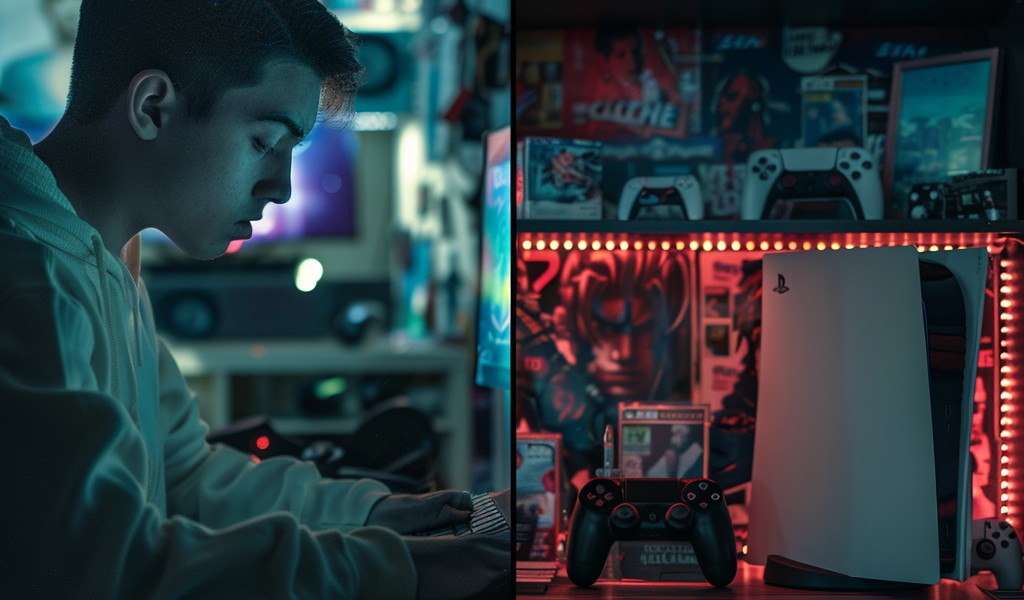In recent months, the gaming community has been buzzing with concerns over rising game prices, particularly for PlayStation titles. As the cost of gaming continues to escalate, many players are expressing their frustration and disbelief at the latest price hikes.
Historically, the gaming industry has seen a steady increase in the pricing of new releases, a trend that has become even more pronounced with the launch of next-generation consoles like the PlayStation 5 and Xbox Series X/S. This surge in costs is not only affecting avid gamers but is also raising questions about the affordability of gaming as a hobby.
The issue of rising game prices is not new. Back in 2020, PlayStation CEO Jim Ryan defended the increases by arguing that video games offer a significant amount of entertainment for the investment. He noted that titles like Demon’s Souls provide hours of enjoyment that can far exceed other forms of media. This perspective, however, has not alleviated the concerns of gamers who are increasingly finding it difficult to keep up with the costs.
Recently, reports surfaced from Turkey indicating that the price of PlayStation games has jumped to an astonishing $85. This price increase has sparked outrage among local gamers, especially considering the country’s median salary of around $400. One frustrated player took to social media to voice their concerns, stating, “Gaming on PC is much cheaper in comparison, I literally cannot afford games on PS5 anymore due to this. These prices have to be illegal.”
This unannounced price adjustment has left many feeling alienated and frustrated, particularly in regions where economic conditions make such expenses hard to justify. The outcry from the gaming community reflects a growing sentiment that companies like Sony, which generate substantial profits, should be more considerate of their player base, especially in countries with unfavorable exchange rates.
Responses to the price hike have been overwhelmingly negative, with many gamers rallying around the original poster’s complaints. Comments on social media highlight a shared belief that the gaming industry should prioritize accessibility and affordability over profits. One user remarked, “You would think that a company that makes billions would want to satisfy their base and the less fortunate people living in countries where the exchange rate is bad.”
As the situation unfolds, it remains uncertain whether Sony will address the backlash stemming from these recent price increases. The gaming community is left waiting to see if the company will take steps to reassess its pricing strategy or if this trend of rising costs will continue unabated.
With the ongoing debate surrounding video game pricing, players are becoming increasingly vocal about their concerns. The impact of these price hikes goes beyond individual gamers; it raises broader questions about the future of gaming as an accessible form of entertainment. As the industry evolves, it will be crucial for companies to find a balance between profitability and ensuring that their products remain attainable for all players.
In addition to the price hikes, the gaming landscape continues to change with new releases and updates. For instance, the PlayStation Plus service has recently added a variety of free games to its extra tier, providing players with more options without additional costs. However, the ongoing issue of game pricing looms large, overshadowing these positive developments.
As gamers navigate these challenges, the community remains resilient, advocating for fair pricing and accessibility in the gaming industry. The collective voice of players could potentially influence future decisions made by major companies, making it an essential aspect of the ongoing conversation about the state of gaming.
In the meantime, gamers are encouraged to explore alternative platforms and consider the overall value of their gaming investments. The industry is in a period of flux, and how companies respond to consumer feedback will undoubtedly shape the future of gaming.
As the dialogue around game pricing continues, it is clear that players are passionate about their hobby and willing to speak out against practices they perceive as unfair. The coming months may reveal whether these concerns lead to tangible changes in the industry or if the trend of rising prices remains unchecked.





